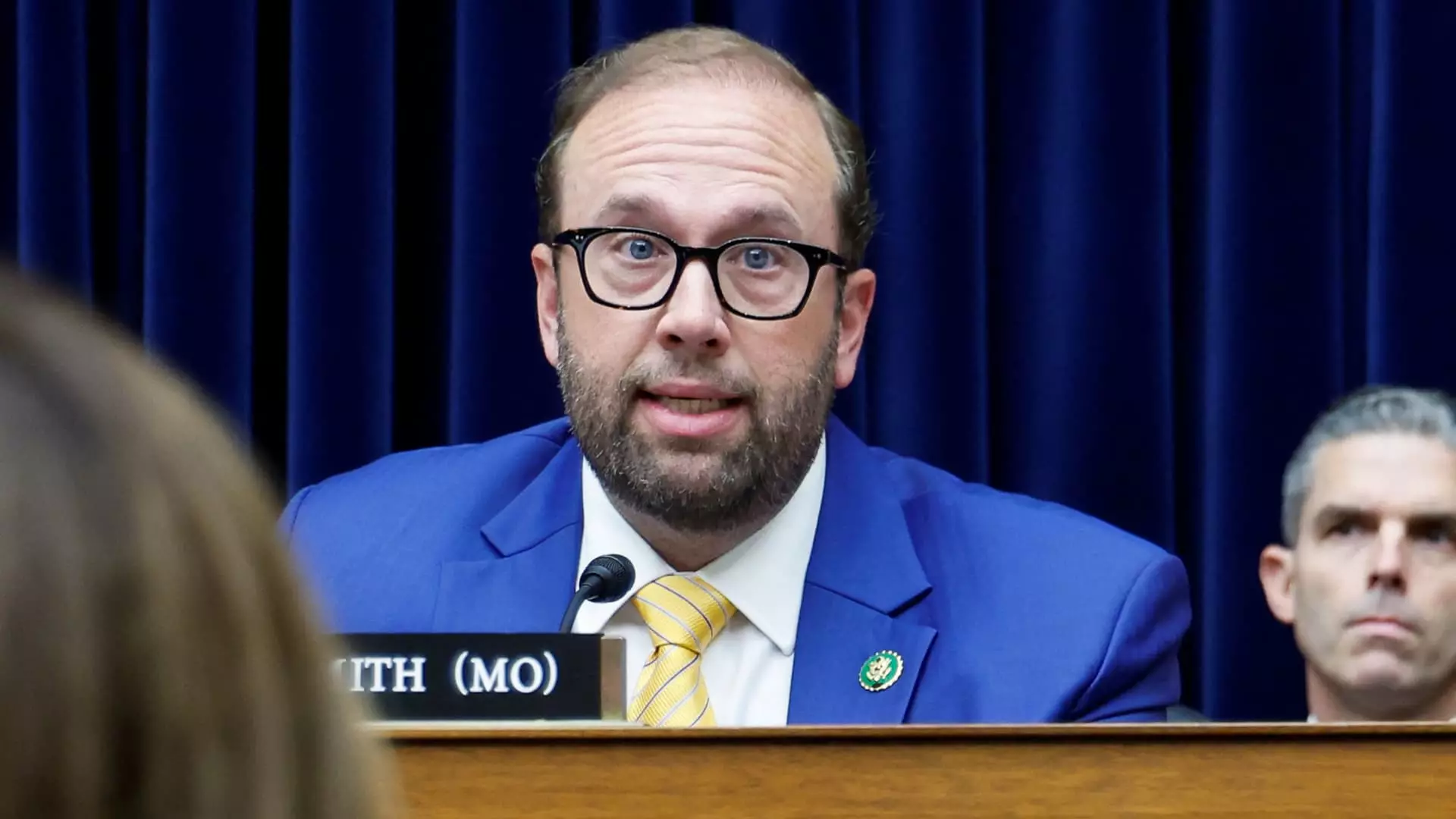House Republicans, under the Trump administration’s influence, have embarked on an ambitious mission to pass tax reform that could cost the nation trillions. Yet, this political maneuver appears less about fostering genuine economic prosperity and more about catering to the affluent. The frenzy within the House Ways and Means Committee—culminating in a narrow 26-19 party line vote—signals a worrying trend toward deepening economic inequality rather than addressing the financial realities faced by the working and middle class.
At the heart of this legislative rollercoaster lies the state and local tax (SALT) deduction, an essential lifeline for residents in high-tax states. The proposed rise of the cap to $30,000 for individuals making $400,000 or less raises eyebrows rather than hopes. Why is the GOP not prioritizing the needs of everyday Americans who don’t come close to those income levels? The $10,000 limit was previously set to help fund the Tax Cuts and Jobs Act (TCJA) of 2017, effectively pulling resources from states struggling to manage their budgets. This latest adjustment merely serves the interests of high-income earners while neglecting the broader population grappling with increased costs of living.
Tax Cuts for the Wealthy, Scraps for the Rest
Chairman Jason Smith’s assertion that Republicans will deliver “One, Big, Beautiful Bill” reflects a disconcerting disregard for economic equity. Lavish tax breaks on tips and overtime pay primarily benefit sectors employing lower-wage workers, yet without substantive reforms like raising the minimum wage, these measures ring hollow. The ability to not tax tips feels like throwing crumbs to people starved for more meaningful support. Furthermore, the proposed $4,000 deduction for older Americans seems generous on the surface but is fraught with limitations and complexities that may provide little relief.
Garrett Watson from the Tax Foundation succinctly expressed this concern, suggesting that the proposed deduction might not adequately cover Social Security income, effectively placing greater financial strain on older citizens who rely on these funds to make ends meet. The argument that this proposal saves the government money in the long run is fundamentally flawed because it perpetuates a cycle of underfunding essential services that aging Americans depend on.
Child Tax Credit: A Misguided Attempt at Relief
The effort to extend the child tax credit to $2,500 per child, albeit temporarily through 2028, seems well-intentioned, yet it too falls short of addressing a fundamental truth: far too many low-income families remain excluded from its benefits. Kris Cox, from the Center on Budget and Policy Priorities, compellingly highlights that 17 million children currently remain unhelped by the existing $2,000 credit. Instead of enacting reforms that genuinely elevate these families, the House bill skews toward shallow measures that do little to amend the structural issues of poverty and inequity.
The lack of regard for policies that support low-income households only ensures that the divide between the affluent and the impoverished continues to widen. Shallow attempts at fiscal generosity are nothing without rethinking the social safety nets necessary for promoting equitable economic growth.
Looking Ahead: Potential Senate Meltdown
Despite the House’s passage of this contentious legislation, the road ahead in the Senate appears fraught with potential for radical amendments. Given the different priorities and political dynamics in that chamber, there exists the possibility that elements of this proposed tax reform could be significantly altered. Sensible lawmakers within the Senate should seize this opportunity to inject reason and equity into a conversation that has so far favored the wealthy.
The prevailing sentiment must shift from perceiving taxation as a burden to recognizing it as a crucial component of a functioning society. It’s imperative that legislators focus on aiding ordinary families struggling under economic pressures rather than perpetuating false narratives of tax cuts leading to broad prosperity. The current trajectory of tax legislation, driven by self-interested motives and partisan fervor, demands a reevaluation that prioritizes the principles of fairness and economic justice for all.

